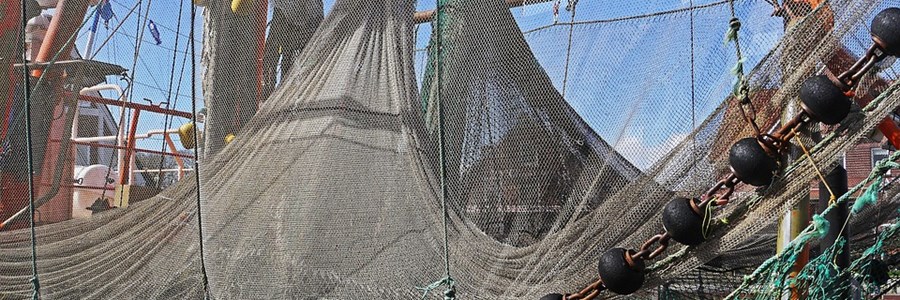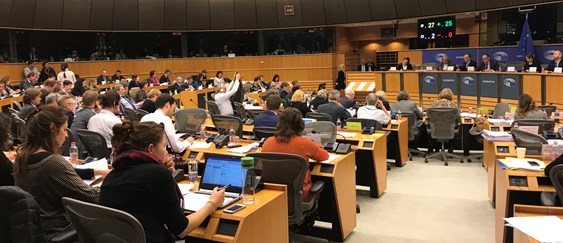European Parliament takes a decisive step towards the regionalisation of technical measures

Today the European Parliament (EP) Committee on Fisheries adopted its position on the European Commission (EC) proposal establishing new rules on the conservation of fishery resources and the protection of marine ecosystems, so-called ‘technical measures’. Europêche welcomes the positive step forward towards the final adoption of this legislative proposal which, in the context of regionalisation, will bring decision-making closer to fishermen and coastal communities. However, these results have been overshadowed by the decision taken by the Committee not to give mandate to the rapporteur, Mr Gabriel Mato, to enter into negotiations with the Council until this report is voted in Plenary, possibly in February 2018. This decision will unnecessarily delay the legislative process and put at risk the difficult compromises achieved on very complex fishery issues.
After months of consultation with all interested parties, the EP has delivered its opinion on technical measures[1]. The Parliament's position builds on the EC's proposal which aims at modernising the existing rules on how, when and where fishermen may operate. The ultimate goal is to reduce catches of juveniles of commercial and non-commercial species, to improve species selectivity, to avoid catches of protected species, to reduce discards and to minimize environmental impacts.
Regarding the overall goals of the Regulation, the EP has adequately introduced ‘performance indicators’, replacing the rigid ‘targets’ proposed by the EC, to assess the effectiveness of the measures. In addition, the Commission had proposed a 5% limit for catches under the minimum size as a target across all seas which in our view is arbitrary, unrealistic, lacks scientific basis and is, in some cases, impossible to implement. Even though the sector feels closer to the Council’s approach which sets the target to reduce by-catch as far as possible, the EP has found a valid way to adapt the 5% threshold to all sea basins through regionalisation. This approach is taking into consideration the specificities of the different regions while moving away from micro-management.
In addition, the EP maintains as an objective and performance indicator environmental[2] standards. While in principle this seems reasonable, it presents a number of problems. Europêche argues that there is a lack of definition and understanding as to how criteria and environmental targets should be made operational; creating much uncertainty on what exactly ‘good environmental status’ means for commercially exploited fishing resources.
The sector welcomes that all EU institutions consider multiannual plans as the most appropriate vehicle for the adoption and application of specific technical measures in the regionalisation process.
The much-debated innovative fishing gear, electric pulse trawl, would be permitted on a commercial scale without limitation on the number of permits provided that a positive scientific assessment is issued by the EC scientific committee (STECF) after a four-year trial period. This fishery would also be subject to certain technical conditions.

One of the biggest discrepancies between institutions exists over the definition of ‘directed fishing’. The Council has reinstated the so-called catch composition rules while the EP has decided to set out the definition through regionalisation. Similar disparity appears between the institutions concerning mesh sizes. Indeed, the EP maintains a ‘status quo’; meaning that current rules relating to mesh sizes will remain the same and may be modified through regionalisation up to a period of 18 months after the entry into force of this Regulation. On the contrary, the Council has in its approach already modified certain mesh sizes as proposed by the Commission.
Javier Garat, President of Europêche, declared: ‘We are convinced the EP has delivered an important contribution towards simplification and has managed to move away from prescriptive top-down measures which up until now were compiled in 30 different EU regulations. Fishermen believe that there is still room for further flexibility in order to adapt to the evolving realities of fisheries. We must not forget that by 2020 all stocks must achieve maximum sustainable yield exploitation (MSY) levels, Brexit will come into effect and all landings obligations will be fully implemented.’
Garat concluded: ‘In the context of the landing obligation, fishers are fully responsible for the catches taken and not for what they land; accordingly they should be allowed to decide the best selective measures. In this sense, the landing obligation in itself is the greatest incentive for improving selectivity. Fishermen can only be selective up to the point of possibility. For obvious economic reasons, fishermen do not want to catch high levels of undersized fish and are therefore as selective as possible. The levels of by-catch vary with season, areas and target species. Furthermore, Members States declared that there is still no reliable data on the level of discards in the different EU fisheries. Accordingly, fishers should be free to choose the most appropriate gears to achieve greater selectivity so as to reduce as much as possible unwanted catches.’
Whether this framework would be good enough to adequately adapt EU fisheries in all areas to achieve the ambitious objectives set in the Common Fisheries Policy very much depends on the future vote in Plenary.
Ends
Europêche represents the fisheries sector in Europe. Currently, the Association comprises 14 national organisations of fishing enterprises from the following 10 EU Member States: DE, DK, ES, FR, IT, MT, NL, LV, PL, UK.
Press contacts:
Daniel Voces, Acting Managing Director of Europêche: +32.2.230.48.48 daniel.voces@europeche.org
[1] COM(2016)134
[2] The Marine Strategy Framework Directive (MSFD)
Sources: Europeche
Attachments:
Tags: Technical Measures, PECH, european parliament, regionalisation, MSY, Landing obligation, MSFD, Trilogue, catch composition rules, fishermen